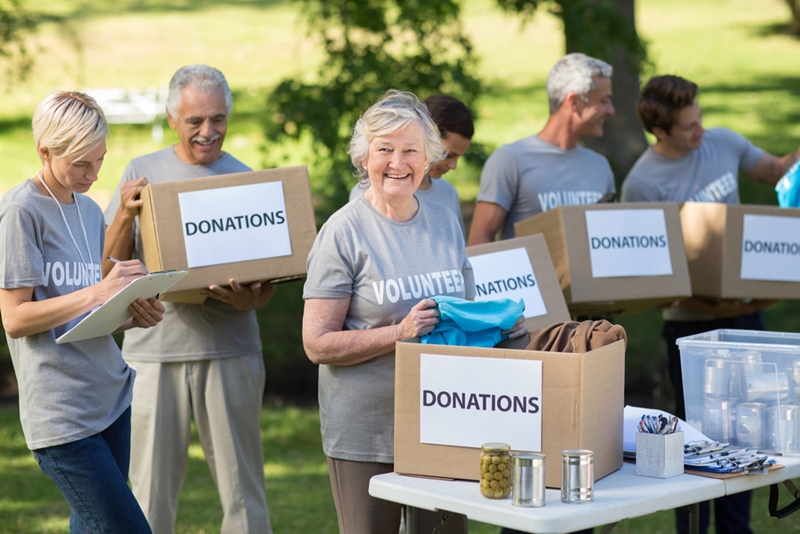National Volunteer Week, taking place this year from April 23 to April 29, is a time to celebrate volunteers across Canada and to, hopefully, inspire even more people to take up a worthy cause to donate their time.
Volunteering provides obvious benefits to the organizations they serve, but are you aware of all the ways that giving back can benefit you as well? Going beyond the good feelings you get by helping others, being a volunteer may help your overall physical and mental health.
How helping others can help you
While we should all be willing to lend a helping hand to those in need for the sake of genuine support and community, the fact that you may reap health rewards from volunteering doesn't make your actions any less altruistic. Knowing more about how your everyday actions and lifestyle choices impact your health, for better or worse, is key for staying well.
"Being a volunteer may help your overall physical and mental health."
And volunteering may indeed help improve your health, especially as you age. A study published by the British Medical Journal found that people who volunteered at least once a week scored more positively on mental well-being tests than people who never volunteer their time at all.
Though all age groups showed positive associations with volunteering, middle-aged to senior adults saw the most noticeable improvements. Volunteering allows people to be part of something bigger than themselves and contribute to a cause that they believe is important. As a result, they may feel more valuable and productive. Parents with older, more independent children and seniors in retirement are especially receptive to these advantages. Activities that were once their main focus that are now phased out - parenting young children or working a full-time job - leave many adults feeling bored or unproductive. So by volunteering with a local organization instead, they can improve their mental well-being and feel more needed again.
The physical benefits
It's not all psychological, either. Volunteering improves physical health as well, so much so that it may even help people live longer, cited the Canadian Cancer Society.
Dr. Kimberly A Schonert-Reichl from the University of British Columbia worked on an international study that examined the physiological health benefits volunteering had on Canadian high schoolers, published in JAMA Pediatrics. They discovered that, of 106 healthy 10th-graders who participated in the study, those who volunteered decreased several risk factors for heart disease, such as lowering cholesterol levels and losing weight, while students who weren't volunteering remained at the same levels they started with.
Several factors play into the physical health benefits of volunteering. For one thing, there is a strong tie between mind health and body health. According to social workers with Burnaby Counseling group, people who display signs of depression are up to three times as likely to have chronic physical health conditions than those without depression symptoms. So when you gain the mental health benefits of volunteering, it may lead to a better overall health as well.
Volunteering can also make you more active. While you know that you need to work out in order to stay healthy, you may not realize all the ways you incorporate exercise into your routines. Carrying boxes of donated goods for a local food bank or helping to landscape the gardens at a community park keep you moving without giving it much thought, which many people find easier than having to make conscious decisions to go to the gym.
 Find causes in your community that could use your help.
Find causes in your community that could use your help.
Finding ways to give back
With so many worthy groups that need a helping hand, it's easy to find a volunteer cause that interests you. Start by looking in your own community for ways to give back - perhaps there's a youth program you can coach, a senior center you can visit or a public beautification project you can work on. Volunteer Canada even offers quizzes and placement guides to help you find the right cause for you and a nearby location at which to work.
Thanks to the age of the internet, you don't even have to leave your house in order to volunteer anymore, making it more convenient than ever to get involved. You can volunteer online in a crisis support chat program or tutor children or create online awareness campaigns through blogs and websites.
Chatelaine recommended several other ways you can volunteer without leaving your home, such as training guide dogs or knitting blankets for those in need.
Whatever you decide to do, National Volunteer Week is a great time to get started with a new volunteer project, for the sake of your community and the sake of your own health as well.